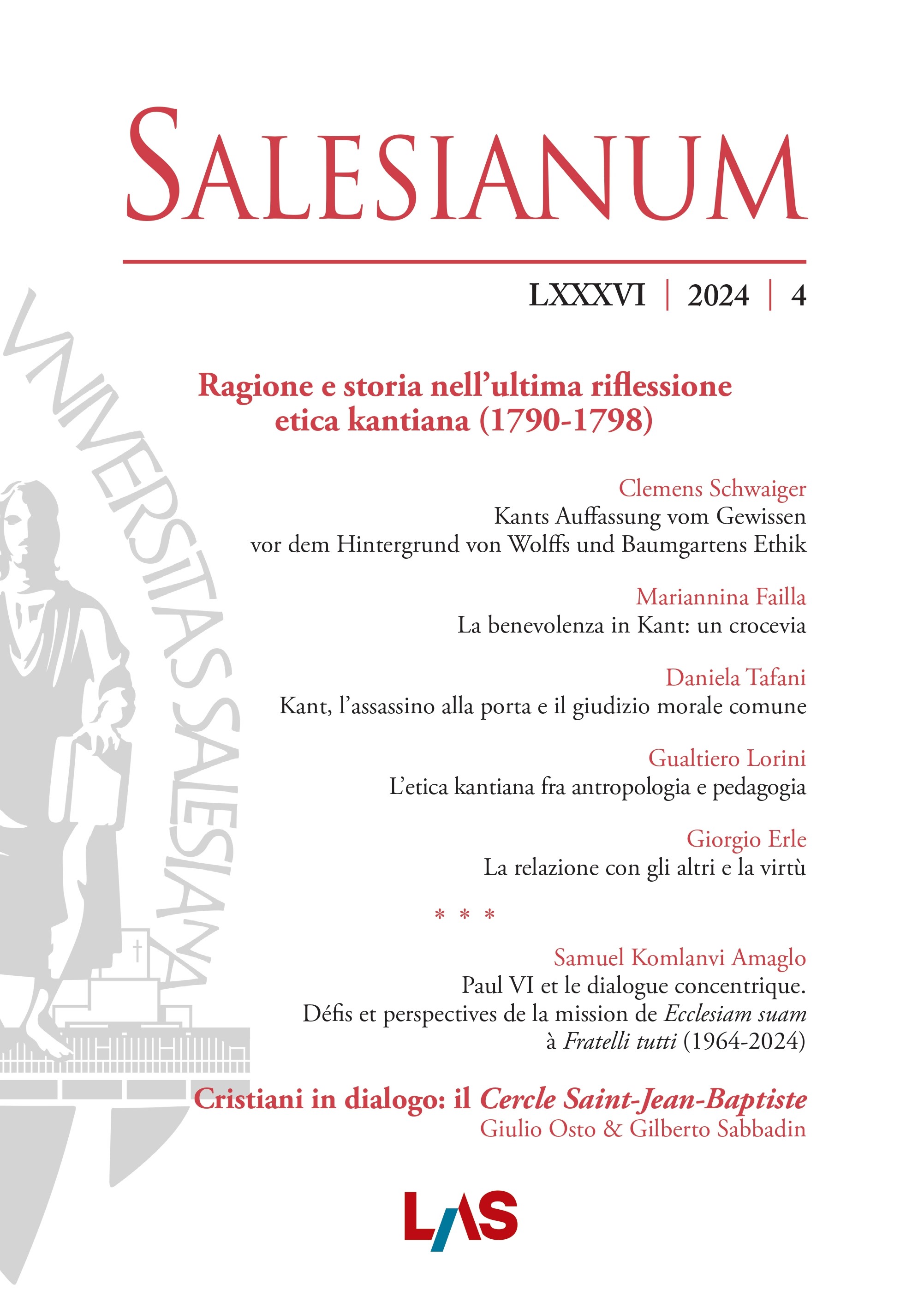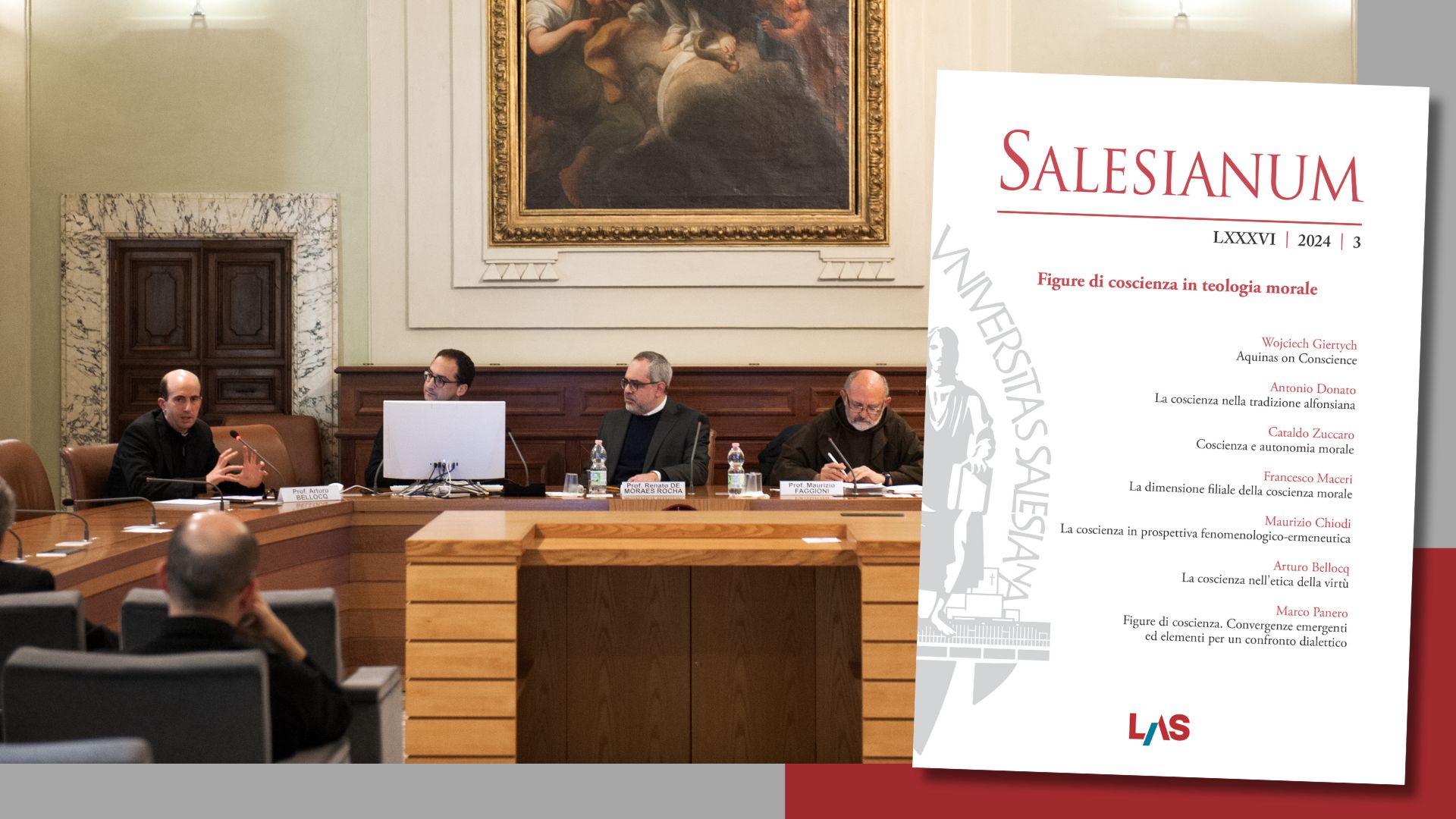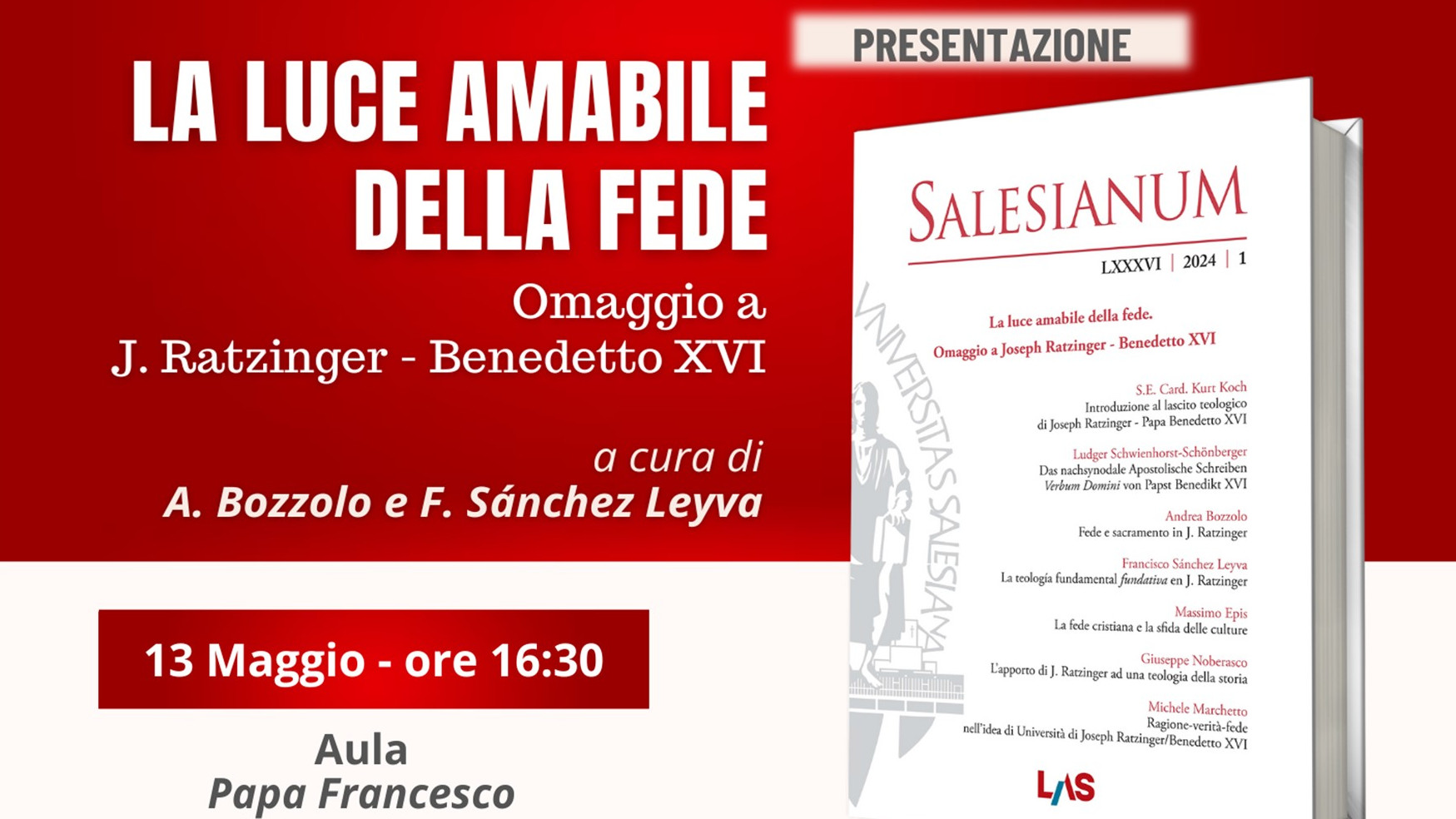«Cercate dunque fratelli…» (Atti 6,3). Alcune considerazioni canoniche sulla consulenza psicologica e formazione alla vita consacrata
Salesianum vol. 81 (2019) n. 3, 522-552
Sezione: Studia
Sommario
«Cercate dunque, fratelli, tra di voi sette uomini di buona reputazione, pieni di Spirito e di saggezza, ai quali affideremo quest’incarico» (Atti 6,3). Così si avvia nella Chiesa primitiva la scelta dei primi diaconi su richiesta degli apostoli. È chiaro che ogni vocazione nasce «dalla», «nella», e «alla» Chiesa (PdV 35). Dunque, è proprio alla Chiesa che viene affidata l’ammissione e la formazione al ministero sacro (PdV 35, 42, 44; cann. 232, 1025 § 1, 1029, 1051, 1052), e anche alla vita consacrata (VC 62, 65; cann. 641, 642, 643 § 1,4°, 644, 656,3°, 658). Tra i criteri di ammissione, la legislazione ecclesiastica indica anche la «salute psichica» dei candidati, verificata con l’aiuto degli esperti (cann. 642, 689 § 2, 1041,1°, 1051,1°). Questo contributo intende presentare gli aspetti canonici della consulenza psicologica vis-à-vis la formazione nella vita consacrata. Per cogliere meglio il senso del rapporto normativo ecclesiastico tra la consulenza psicologica e la formazione nella vita consacrata, dunque, fa alcune premesse e descrive il contesto remoto e immediato di tale normativa, prima di discutere vari aspetti canonici della consulenza psicologica e, così, terminare con alcune considerazioni giuridiche sul discernimento, sui diritti della Chiesa e dei fedeli da rispettare, e sulla normativa da provvedere per la vita consacrata.
Abstract
«Brothers, select from among you seven reputable men, filled with the Spirit and wisdom, whom we shall appoint to this task» (Acts 6,3). Thus, the search for the first deacons begins in the primitive Church, at the request of the apostles. It is clear that every vocation is born «from», «in» and «for» the Church (PdV 35). Therefore, it is to the Church that admission to and formation for the sacred ministry is entrusted (PdV 35, 42, 44; cann. 232, 1025 § 1, 1029, 1051, 1052), as also for the consecrated life (VC 62, 65; cann. 641, 642, 643 § 1,4°, 644, 656,3°, 658). Among the admission criteria, the canon law also indicates the “psychic health” of the candidates, which could be verified even with the help of the experts (cann. 642, 689 § 2, 1041,1°, 1051,1°). This article intends to present the canonical aspects of psychological counselling vis-à-vis the initial formation in the consecrated life. To better grasp the meaning of the ecclesiastical norms on the relationship between psychological counselling and formation in the consecrated life, therefore, some preliminary issues are discussed, while describing the remote and the immediate contexts of the ecclesiastical legislation. After the presentation of various canonical aspects of psychological counselling within the formation, we conclude with some juridical considerations on the vocational discernment, on the rights of the Church and of the faithful, and on the possible future legislation on the psychological counselling in consecrated life.


